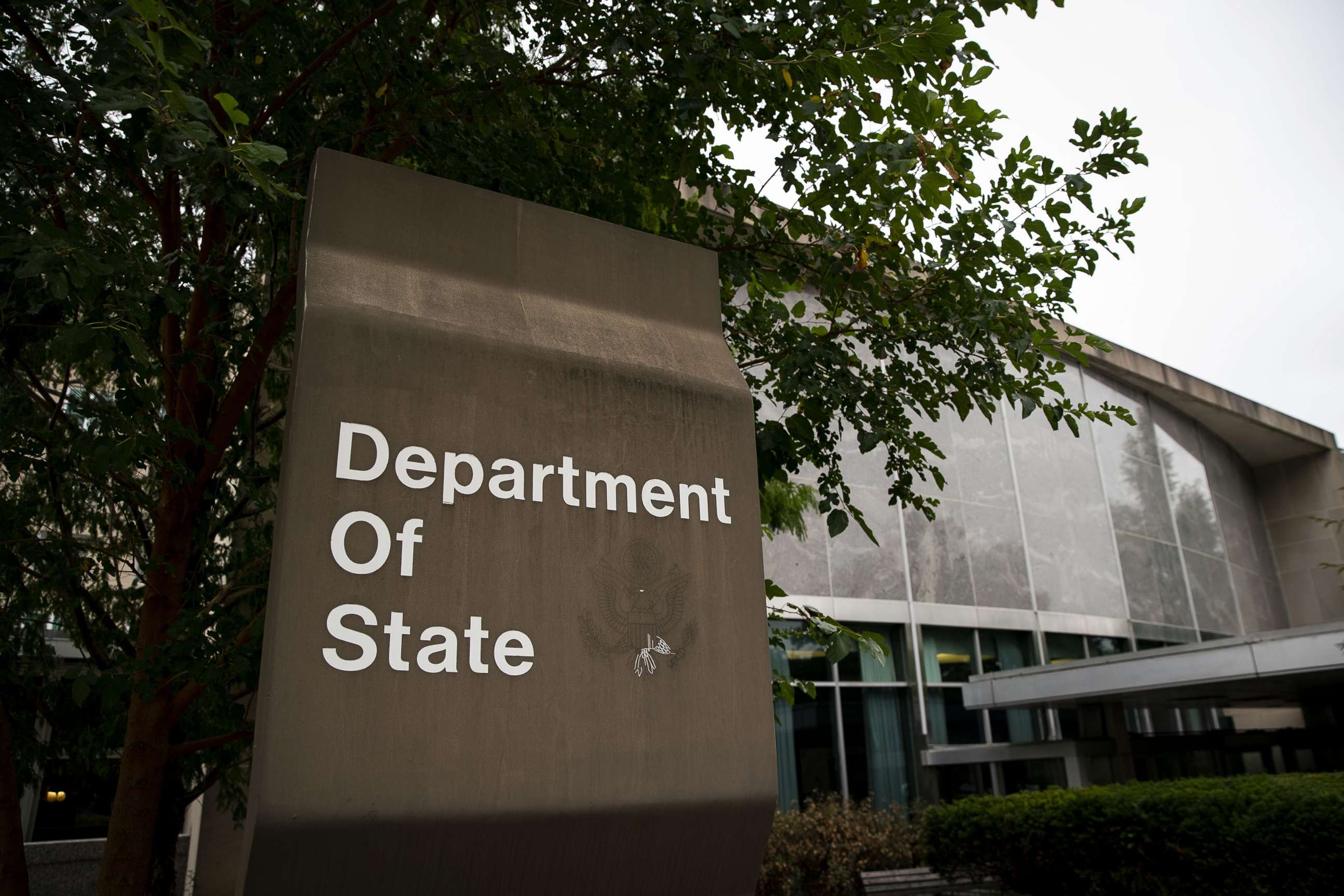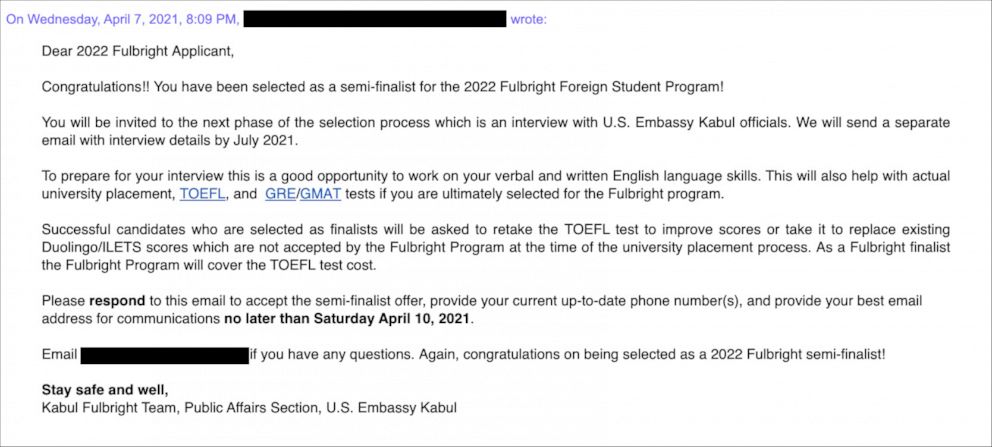State Department delivers crushing news to Fulbright scholar hopefuls in Afghanistan
The update was emailed to 140 semi-finalists in Afghanistan on Friday.
The State Department will not continue its prestigious Fulbright Foreign Student Program in Afghanistan, an official said Friday, after 140 semi-finalists were chosen last year but left in limbo regarding the program's status since the chaotic withdrawal of U.S. troops and Taliban takeover.
The crushing news was delivered to applicants on Friday afternoon after months of delays to applicant interviews.
"Due to significant barriers impeding our ability to provide a safe exchange experience, the selection process for the Fulbright Foreign Student Program in Afghanistan for the 2022-23 academic year will not move forward," a State Department official told ABC News. "We recognize the significant time and effort that the current applicants have invested and understand that this decision brings disappointment."
The statement went on to say that the opportunity was not ending solely for the upcoming cohort, but that State would not continue to take future applicants -- effectively suspending the program for now.

"At this time, we are not proceeding with or accepting applications for the Fulbright Program in Afghanistan. Should conditions change such that we can again support Fulbright opportunities for Afghan students, we will again invite applications for the program," the official added.
While the program will continue for the more than 100 Fulbright students from Afghanistan who are already studying in the U.S., the State Department did not offer details on their return to their native country, as the grant is designed for scholars to do.
An email from the State Department to the 2022 group last month suggested they consider other evacuation routes and opportunities as it explored the options for continuing the program, "but we have not yet identified a safe and viable way forward," it said.

The Fulbright Program, administered by the State Department's Bureau of Educational and Cultural Affairs, was established by Congress in 1946 with a goal of international relationship building by offering both grants to U.S. citizens to study or teach abroad and to non-U.S. citizens to study in the states. Secretary of State Antony Blinken is one notable alum.
Afghan students typically come to the U.S. to gain their master's degrees under the program before returning to Afghanistan to take what they learned back to their communities.
The cohort that had hoped to begin studying in the U.S. this year saw delays to their application first from COVID-19 and then, again, with the end of America's military and diplomatic presence in the country now on the brink of economic collapse and famine. Applications were initially due last February, and semi-finalists were notified last April.

Maryam Jami, 23, an attorney in Herat, Afghanistan, who spoke with ABC News last month, said she dreamt of obtaining her Master of Law in the United States as a Fulbright scholar, pinning the program as both a venue to her own dreams and a tool for a better future for Afghanistan.
"We really put too much effort into our applications and this program. We rejected most of the immigration offers, lots of other scholarships, just for the Fulbright Program. Because this is a different program. It's obvious from its principle," she said.
The State Department has canceled the Fulbright Program in the past for certain cohorts for safety reasons. Typically, scholarships are rescinded and semifinalists are asked to reapply if they want to pursue the Fulbright again -- but this year's cohort will be unable to with the program in Afghanistan coming to a halt.
"This is the time that Afghanistan needs the prospective Fulbright Scholars the most," Jami told ABC News. "Education -- and the fate of the Afghan youth -- should not be conditioned to political rivalries or political games."
ABC News' Conor Finnegan contributed to this report.




